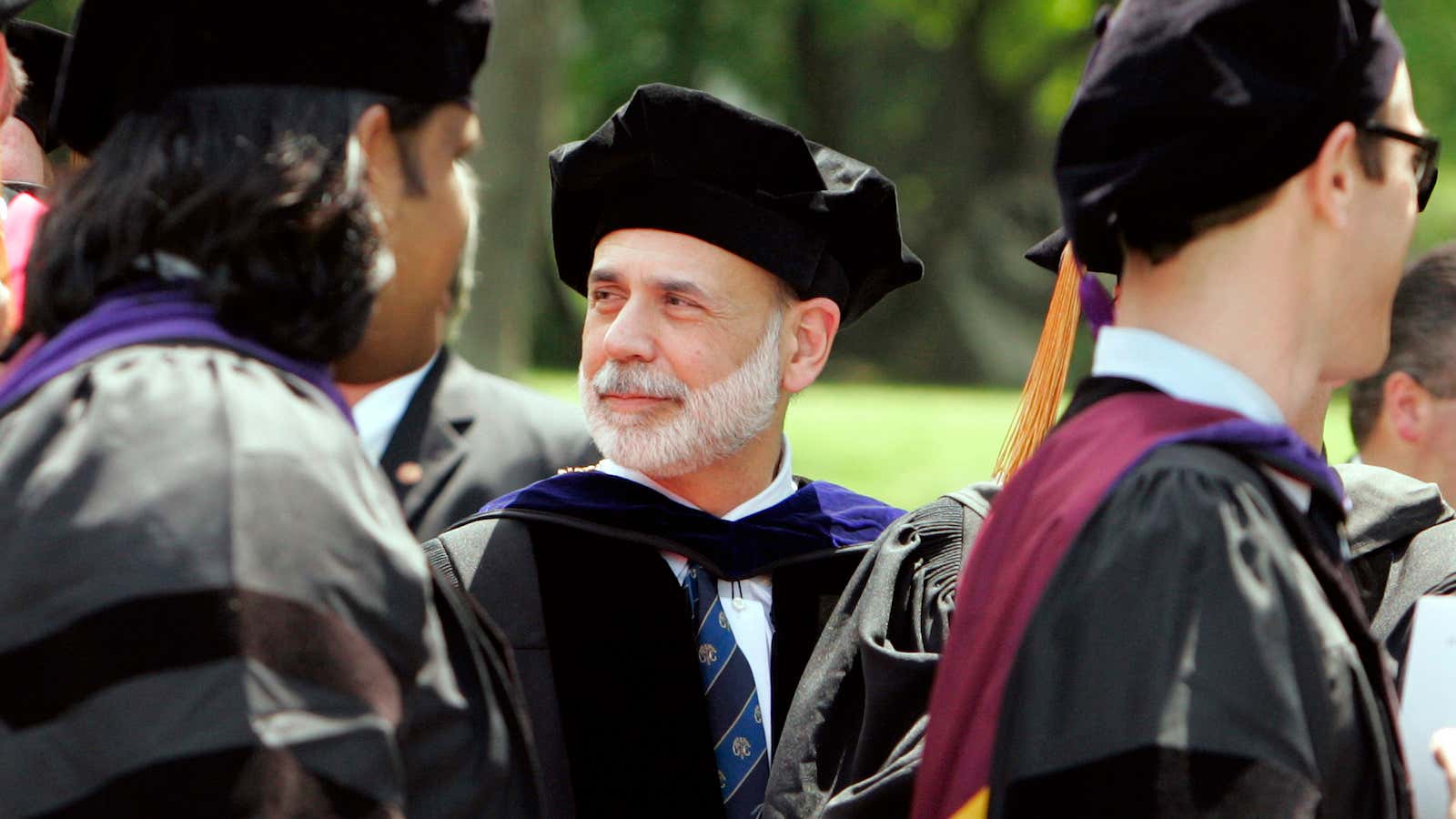The value of a law degree just isn’t what it once was.
Law school graduates are facing shrinking job prospects in general, as law firms trim their numbers post-recession and grow more efficient with the aid of technology. Some schools even stand accused of illicitly inflating their post-graduation statistics just to appeal to applicants.
All of this is evidence that the legal schooling itself should be revamped, argues a new research paper (pdf) from the nonprofit Clayton Christensen Institute. Co-authors Michael Horn and Michelle Pistone say America’s law schools remain overly focused on tradition and prestige, which blinds them to the reality: that the practice of law is changing, and institutions aren’t keeping up.
As an example: divorce in the US usually requires booking a lawyer and ponying up thousands in legal fees. But in the state of Washington—and possibly several others soon—a much less expensive service is available. Gaining national traction is a new program that allows paralegals to serve as “limited-license legal technicians” and practice certain types of law (like family law) without a law degree, similar to how nurse practitioners are able to perform many doctor’s duties without a medical degree.
The program opens up legal services for many Americans—and it also cuts down on the need for full-fledged lawyers.
“The legal industry is now in the early stage of disruption—and there is a corresponding opportunity for disruption to emerge in legal education,” Horn and Pistone say. “There is still time for law schools to change, but the window of opportunity will not be open forever.”
They propose three ways for law schools to innovate:
- Overhauling the JD. Schools should develop a new educational model for the degree that helps students master “the competencies most relevant to the 21st century lawyer”—a.k.a. more practice, and less theory.
- Offering blended learning. By mixing traditional instruction with online learning, schools can control tuition costs and start stepping away from the hotly debated Socratic method.
- Offering a specialized law degree. Rather than having students graduate with a general JD, it may prove beneficial for them to enter the legal market with a focused set of skills that takes less time and money to obtain.
Certainly, there are schools and faculty members who would balk at the idea of making such dramatic changes to an age-old institution. But given that average LSAT scores are dipping and law school applications are down 40% since 2005, Pistone and Horn’s advice may be worth heeding.
